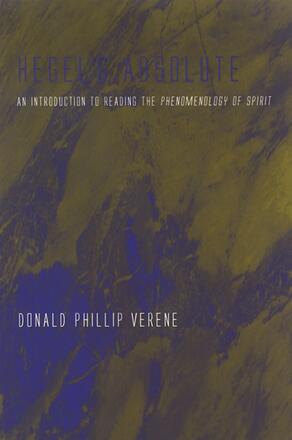
Hegel's Absolute
An Introduction to Reading the Phenomenology of Spirit
Alternative formats available from:
Offers suggestions for approaching Hegel’s most difficult and important work.
Description
Reputed to be one of the most difficult yet rewarding works of philosophical literature, Hegel's Phenomenology of Spirit has long been in need of an introduction for English readers. Without using jargon or technical terms, Donald Phillip Verene provides that introduction, guiding the reader through Hegel's text as a whole and offering a way to grasp the major insights and sections of Hegel's text without oversimplifying its narrative. A glossary of sixty of Hegel's terms, discussed in both their original German and English equivalents, is included.
Donald Phillip Verene is Charles Howard Candler Professor of Metaphysics and Moral Philosophy at Emory University and past president of the Hegel Society of America. His many books include Vico and Joyce and Hegel's Recollection: A Study of Images in the Phenomenology of Spirit, both also published by SUNY Press.
Reviews
"This is genuinely an introduction to reading the Phenomenology, as opposed to the more typical commentary or exegesis insisting on some particular reading, and it introduces the Phenomenology in a way that actively encourages new and different readings. The author encourages the reader to take Hegel on his own terms, to follow the path that Hegel believes Spirit travels in the midst of its unfolding autobiography. The first task—if one is truly to profit from reading the Phenomenology—is just to try to see why Hegel thinks as he does. Embedding the Hegelian project in the philosophical and cultural context of the early nineteenth century, as well as drawing on disparate parts of the rest of the tradition to help elucidate his points, Verene provides an elegant and rich framework within which to take up this task." — Brian John Martine, author of Indeterminacy and Intelligibility